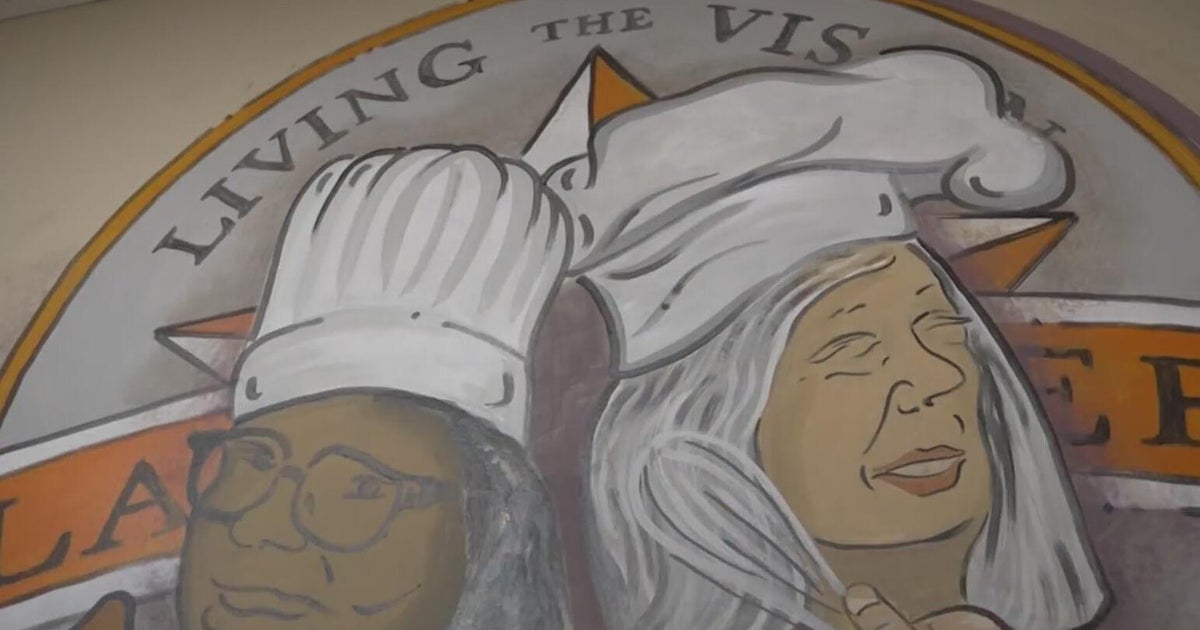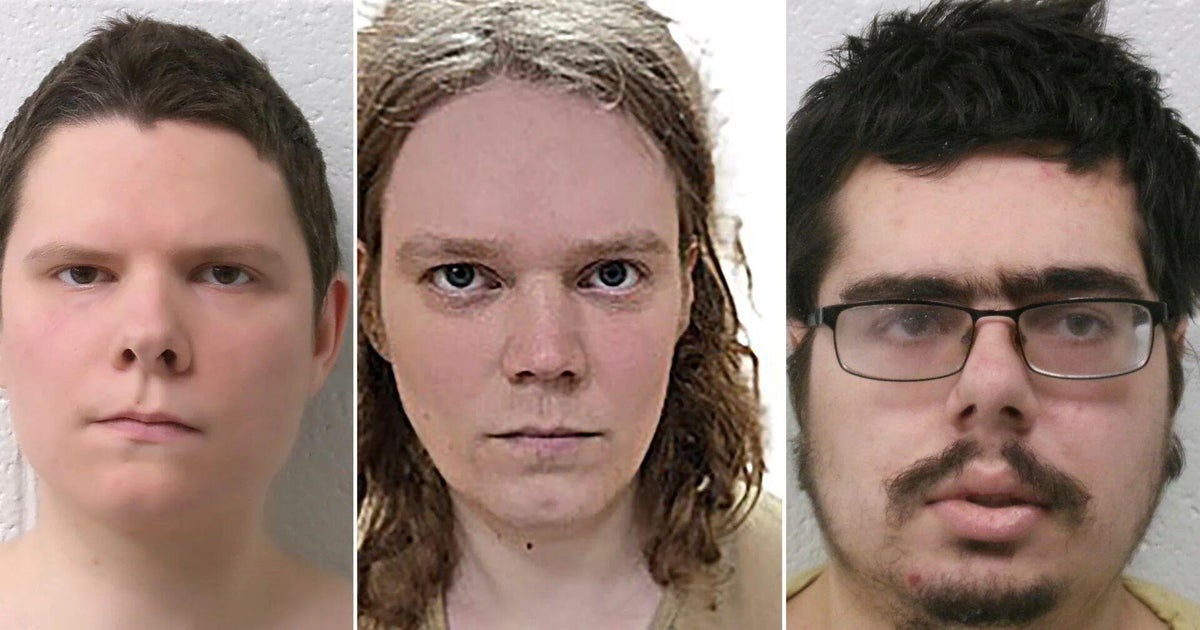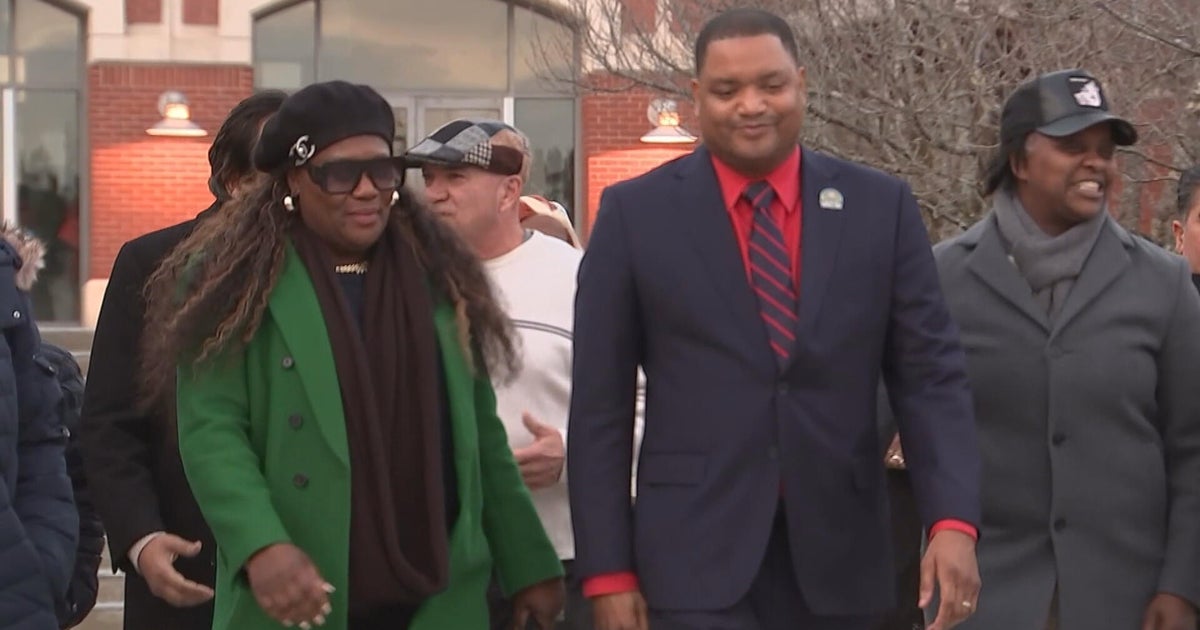City Council moves to declare independence from the mayor in raucous vote
CHICAGO (CBS) -- The Chicago City Council on Thursday approved a push to make itself a more independent legislative body, regardless of who is the next mayor, despite angry objections from several alderpersons who said they were leaving incoming council members out of the process.
By a 33-11 vote, the City Council approved the creation of nine new committees in the upcoming term that starts in May, to bring the total number of committees to 28; and by a 34-10 vote, approved a handful of revisions to the council's rules of procedure.
While City Council members have always had the authority to decide who chairs each committee themselves, for decades they have ceded that power to the city's mayors, allowing them to select their allies as committee chairs to ensure their agendas can be more easily approved.
Aldermen were determined to keep that power to themselves before either Brandon Johnson or Paul Vallas replaces Mayor Lori Lightfoot, so much so that they rushed the changes through on the same day they were publicly introduced to the City Council, five days before the runoff election. Critics accused the aldermen behind the changes of simply trying to protect themselves, and award those who went along with the vote with chairmanships, which bring with them additional staff and six- to seven-figure budgets to oversee, depending on the specific committee.
Never before had the City Council voted to set new committee chairs and revise the legislative body's rules at the end of a term, less than a week before runoff elections, prompting several council members to cry foul.
"Why are we denying incoming aldermen who will be selected by the voters of Chicago on April 4 the opportunity to determine their leadership team, and to determine the rules under which they will operate for the next four years?" said Ald. Brian Hopkins (2nd)
"Why couldn't we wait five days?," said Ald. Jeanette Taylor (20th). We've been begging to be independent since I got here, and it ain't happened, and so it's funny to me that now we're changing administrations and people have grew some balls."
But supporters of the new committee structure and new rules said they wanted to act before a new mayor takes office, and potentially tries to influence those decisions.
"We wouldn't be able to do this after the mayoral election, we just wouldn't, and for those of my colleagues here saying and wishing and hoping that we would be good enough to do that, I appreciate the idealism, and the optimism, but you know it would not happen." said Ald. Maria Hadden. "The office of the mayor holds so much power, and has held so much power."
Ald. Susan Sadlowski Garza (10th), who is retiring at the end of her term, said it shouldn't matter if the new mayor wants to have a say in who chairs council committees if the City Council truly wants to keep that power to themselves.
"It doesn't matter if the mayor brings an ordinance to trump what you're doing. Stand up and be independent," she said.
Ald. Scott Waguespack (32nd), who was among the chief sponsors of the push to create the new committees and rules sooner rather than later, noted that the new council will still have to vote on the new committee structure and rules when they take office in May, so will get a say in the process once they're sworn in.
Waguespack chided critics of Thursday's vote, and without naming names, accused them of failing to even come to the table to discuss how to proceed with the push for a more independent council.
"You had to be willing to show up and actually discuss this process. You couldn't sit on the sidelines and say 'Hey, I don't like it because I wasn't invited. Everybody was invited. Everybody was asked for input. To say otherwise is wrong," he said.
Ald. Carlos Ramirez-Rosa (35th) also noted the measures approved on Thursday only set out who will chair each of the 28 committees, not the full membership lists, allowing for incoming alderpersons to consult with their colleagues on who will serve on each committee. Ramirez-Rosa said that was a key concession in winning over support from him and several other colleagues who initially opposed voting on the new committee structure and council rules before the new council is sworn in.
Ald. Sophia King (4th), who chairs the council's Progressive Reform Caucus, lamented that a majority of the group supported Thursday's vote, saying "This is a jacked-up process, and you know it."
"A runaround on the process is definitely not progressive," King said. "It's not democratic either, and I am super-ashamed of members of the Progressive Caucus who are progressive when they want to be, who are teaming up on behalf of folks who haven't been talking about an independent council, so that they can have power for power's sake."
Other critics said the City Council members behind Thursday's vote were only concerned about their own self-interests, accusing existing committee chairs who led the effort of simply trying to make sure they keep their influential positions regardless of who the next mayor is.
"This process was easy, because you all did what was in your best interests. It was easy because you excluded people. That's why it was easy. You're trying to hamstring the new City Council," said retiring Ald. Leslie Hairston (5th). "How does this right here make our communities better. How are you going to pay for this? How are the taxpayers going to pay for this?"
Ald. Anthony Beale (9th), who is the second most senior member of the City Council, but won't be among the committee chairs was one of the most outspoken opponents of Thursday's vote. He said he didn't care whether he got a chairmanship, but accused supporters of the initiative of simply creating enough new committee chairs to get the votes needed to get the lame duck City Council to pass it.
"I am embarrassed to be a Chicagoan today," he said. "I have never seen a process to buy votes such as this.
Beale also noted that his own efforts to create a more independent City Council in recent years have been blocked.
"I've tried to have our own budget analysis, I've tried to have our own parliamentarian, I've tried to have our own legal department. Nope. We can't do it. Block Alderman Beale's process. Can't do it, but it's okay to create ten more committees to buy people," he said. "You should be ashamed of yourselves. This is not transparency. This is not independence. This is a corrupt process."
Ald. Raymond Lopez (15th) said council members supporting the new committee chair assignments were only trying to subvert whoever the next mayor will be, and "trying to put that person behind the 8 ball of a dysfunctional body, and you're going to set them up for failure."
"You have concocted a plan that secures 28 of you; the best of the best of the most scandalous of councils could never have conspired what you have done, or are trying to do today. Vrdolyak would be proud of you right now," he said, referring to former Ald. Edward "Fast Eddie" Vrdolyak, who was notorious for cutting back-room deals during his time on the City Council.
Critics also noted that, of the City Council's current 19 committees, several of them rarely, if ever meet, and questioned the need to expand that number to 28.
In 2022, the Committee on Education and Child Development and Committee on Environmental Protection and Energy met only twice, and the Committee on Immigrant and Refugee Rights never met at all, even as the city struggled to deal with an influx of hundreds of migrants sent to Chicago from Texas.
Among the new committees will be a Committee on Aging, a Committee on State and Federal Legislation, a Committee on Sanitation and Solid Waste Management, and a Committee on Youth Services.
Ald. Roderick Sawyer (6th), who is leaving office after a failed bid for mayor, said it seemed as if his fellow council members were creating a separate committee for every single city department, "which I think is wasteful." He said some of the new committees could be combined to give them oversight over two or three related city departments.
For example, the new committee structure separates the Public Safety Committee into two – a Committee on Fire and Emergency Management, and a Committee on Public Safety and Criminal Justice – and the Committee on Zoning, Landmarks, and Building Standards into a Committee on Building Standards and a Committee on Zoning and Landmarks.
Under the new rules, each alderperson would be limited to serving on a maximum of 10 committees, The Budget and Finance committees would continue to have a maximum of 35 members, and the Rules Committee would have all 50 alderpersons as members, while all other committees would be capped at 11 members, down from the current limit of 20. Critics have noted the smaller committee sizes would allow for a quorum to be established with only six members, and measures to advance to full City Council with as few as four votes.
In addition to the new committee structure, the Council voted to tweak its rules of procedure, incorporating gender-neutral language – such as formally changing the title of alderman to alderperson – and changing the procedures for direct introductions of legislation, which are frequently made at committee meetings without first making proposals available to the public.
According to the new rules, direct introductions of legislation could only be made to committee if they include a "statement of urgency explaining the nature of the emergency in detail," are publicly posted at least 48 hours before a committee vote, and are provided to "all members of the City Council along with an impartial and unbiased summary of the matter."
Ironically, that procedure was not followed when supporters of the new committee structure and rules introduced their proposals directly to the full City Council, with the individual resolutions not being made public until after the meeting had started.
That move drew the ire of a handful of government watchdog groups, including the Better Government Association.
BGA policy director Bryan Zarou said introducing and passing the new committee structures and new council rules on the same day, when neither measure had been made public until Thursday, "denies the public any chance to weigh in on the specifics of the rules and leadership changes."
"If Council is to stand on its own as an independent legislative body, it must be one the public can have faith in. Shortcutting your own rules to introduce things and pass them on the same day is a terrible precedent with which to begin a new era in Chicago's political history," Zarou said.








